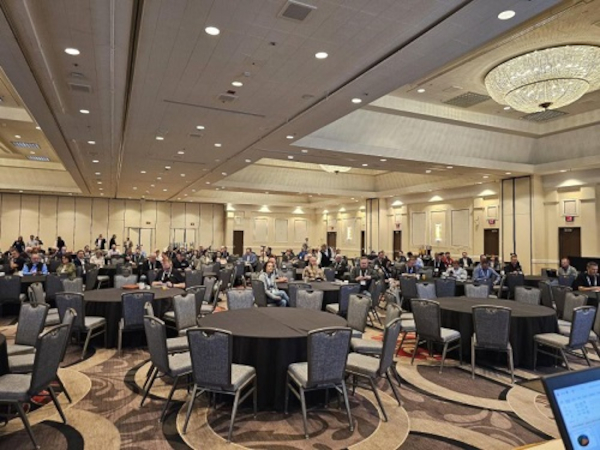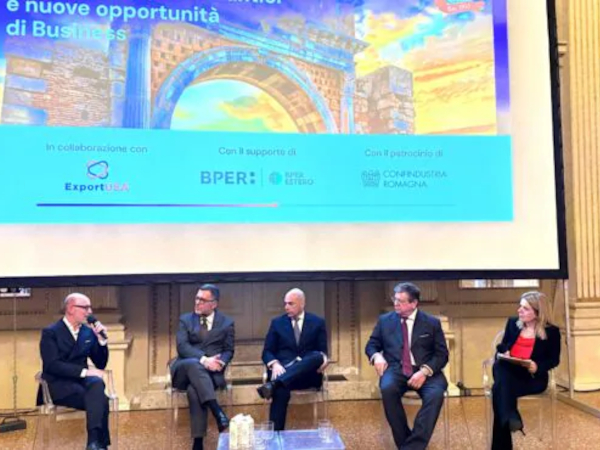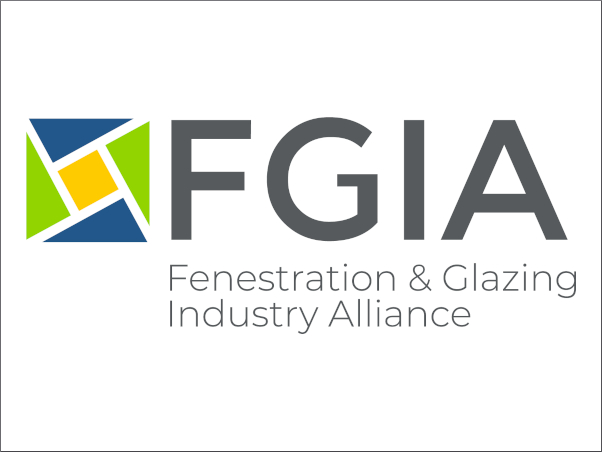
Date: 23 June 2017
Collins gave a forecast on how Trump’s influence on matters such as immigration, China trade, health care and other big news topics could have on the industry.
Decreasing Financial Regulation
Republicans are seeking to replace the Dodd–Frank Wall Street Reform and Consumer Protection Act, which was passed in 2008 by President Obama in the wake of the financial crisis.
The proposed replacement plan is called the Financial CHOICE (Creating Hope and Opportunity for Investors, Consumers & Entrepreneurs) Act. The CHOICE Act would end the "too big to fail" philosophy of banks and would emphasize oversight by financial industry self-regulation rather than Washington.
Immigration Policy’s Impact on the Industry
Immigration arrests: More than 41,000 people have experienced immigration-related arrests since Trump signed his Executive Order, creating an atmosphere of concern, said Collins. This could mean a furthering of the current labor shortage, and companies may need to take wider strides in ensuring workers are documented.
Health Care Reform
While Republicans are trying to repeal the Affordable Care Act (ACA), many building products companies already offer benefits packages that surpass the requirements of the ACA or are too small for ACA to apply, said Collins. Therefore, repeal of the ACA would not be likely to impact the industry.
Environmental Policy
The Waters of the United States (WOTUS) rule was meant to ensure environmental safety of navigable waters. Trump signed an Executive Order to restrict the waters regulated by the EPA under this rule. Builders applauded this move, saying it eased regulatory burden.
However, said Collins, a bigger deal in the environmental sphere is Trump’s decision to withdraw from the Paris Accord, which would take effect in 2020. This decision has had some cities and states unhappy, and vowing to continue to abide by the Accord. If that trend continues, it could show a grassroots movement toward overriding presidential action.
Another big component of environmental policy that could impact the industry is the fate of ENERGY STAR. Trump’s budget calls for the Environmental Protection Agency (EPA) to privatize the program.
Still, “the industry benefits from ENERGY STAR no matter who runs it,” said Collins, concluding that companies should hope that the program ends up in good hands. The industry benefits from the program thanks to its name recognition with consumers.
Budget
The 2018 proposed government budget totals $4.1 trillion. However, the Department of Housing and Urban Development, the Occupational Safety and Health Administration and the EPA all face cuts.
Discretionary spending would decrease by $1.5 trillion over 10 years, leaving a balanced budget by 2027, if future presidential administrations follow the same budget plan.
EPA cuts include funding for the enforcement of the lead paint rules, which would be pushed to the states. When it comes to infrastructure spending, Trump has designated $1 trillion to create jobs and benefits in areas where construction takes place.
“One drawback to this is that those projects will pull labor from residential and commercial construction, worsening the current labor shortage,” Collins said.
China
China is a thorny issue in the industry, Collins admitted. Trump's policies seem likely to result in increased prices on goods imported from China to encourage use of U.S. goods. That said, companies that make their own extrusions in the U.S. have an advantage.
Collins also pointed out that the government has ways of adding soft costs to imported goods that make them relatively less attractive. This includes increasing the length of time that it takes for a foreign worker to receive a temporary visa permit to aid in the installation of manufacturing equipment purchased overseas.
Other Legislation Impacting the Industry
The Timber Innovation Act has also been proposed and would pave the way for greater use of lumber in commercial framing for mid- and high-rise buildings.
Other proposed legislation would maintain funding for HUD affordable housing, increase green standards in residential building and change the rate at which insurance premiums will rise under the National Flood Insurance Program, allowing more time to adjust to cost increases.
What can you do in the face of uncertainty? Collins has important advice, no matter where you stand on either side of the aisle.
“Make your voice heard,” Collins implored.
More information about AAMA and its activities can be found on the AAMA website.
 600450
600450













Add new comment